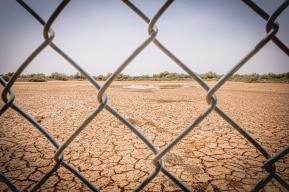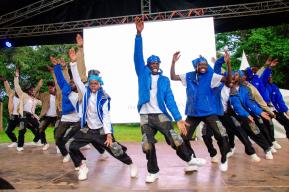Health and Wellbeing
The so called ‘new normality’ is urging the world to think outside the box, in order to establish dynamic and creative ways to promote active participation of women in the co-creation of spaces towards their empowerment and self-improvement. COVID-19 has and affected formal and informal educational processes throughout the world, going virtual in a country like Guatemala where almost 50% of the population lives in rural areas, and has no access to a computer, a smartphone or internet reception, was a real challenge.
Moreover, despite the long-term impacts of the pandemic are still hard to tell, our societies are already reflecting them in different ways, depending on the socioeconomical, ethnic and gender conditions of the population, affecting people’s integral health in different ways. Over the past few months, Guatemala has reported a significant rise of cases of violence against women, whose home workload has also increased, because of the partial confinement measures proposed by the government in March 2020, to prevent the proliferation of COVID-19 cases.
Women working with women
Therefore, the second phase of the UNESCO Malala Centers for the Education of Adolescent Girls and Indigenous Young Women of Guatemala project, started with a long-distance virtual training program, based in education in health and well-being for indigenous girls, adolescents and young women in Guatemala, on integral health, good living, gender equity, gender-based violence prevention and resilience in the context of the pandemic.
Thanks to the motivation and will to improve of 23 female indigenous leaders located in San Andres Xecul and Santa María Chiquimula, who are truly committed with the empowerment of their communities, the first virtual program on health and well-being became a reality. These ‘lideresas’ have been involved women’s development processes, throughout project’s phase one, by taking part in the non-formal education training programs, and others by being part of CONALFA’s literacy program in both municipalities.
These women participated in the different stages of the re-adaptation the virtual program, that, thanks to their active support, reached 161 indigenous women, distributed in small groups from 5-6 persons, in both municipalities. An initial meeting to present the training modules was organized, with the purpose of listening to their opinions, and provide comments about the proposed activities.
This resulted in the creation of a four-week training program on Health and Well-being, that consisted in weekly zoom meetings, where the female leaders received useful information on three different subjects:
- Integral health and good living in the context of COVID-19
“People are scared, because they can get infected from COVID-19, the others should not get angry with them, they should receive support, but with the necessary measures” Rosario, San Andrés Xecul.
- Prevention of gender-based violence
“Personally, I have seen how they (men) mistreat orphan children, and women, they say terrible things that hurt their feelings, they are told that they are worth nothing… but I believe that they should not be doing this to women and girls, because we all have the same rights” Participant-Santa María Chiquimula.
- My life plan: building a new normality
"I deeply enjoyed the embroidery process, because we never imagined how much could one reflect through knitting, how an embroidery piece can mean so many things, how we can draw our feelings, or how we want things to be in a few years." Maruca Garcia, San Andres Xecul.
These sessions were complemented by a series of additional tools, such as videos, pictures, and a permanent accompaniment from the UNESCO-Malala Centers’ promoters in the field, to overcome any challenge that could have emerged during the training process. Each ‘lideresa’ had a week to replicate the module in smaller groups and promote the active participation of the women taking part in each of the activities. After every mini workshop, they could evaluate the program and express their perception on each of the topics during the implementation phase.

Long life learnings
Learning processes based in competences, allow women to create and strengthen their capacities to solve their daily lives. The promotion of health and well-being in indigenous women is fundamental to guarantee a dignified life from a good living perspective. Every day, indigenous women in Guatemala are facing inequalities that result in violence, sexism, illiteracy, and racism. Therefore, the creation of safe spaces for reflection, creation and transformation are vital to build new ways of living in healthy and violence free environments.
Together, knitting for hope
By the end of the Health and Wellbeing training module, 87% of the female promoters, successfully finalized their virtual participation and the replication of the long-distance program with 161 participants from both municipalities.
Participants were able to recognize the relation between COVID-19 with their integral health, as well as the importance of strengthening their immunological system. They were also able to recognize the negative effect of stigma as a form of discrimination of people diagnosed with COVID-19, moreover, they are also aware of the importance of recognizing the rights of these people to be respected amongst their communities.
During the sessions, they were also able to relate their own experiences with gender inequality, and violence against women, as well as the phases of the circle of violence.
Self-esteem was recognized by the participants as a mean to achieve their goals and dreams, which were creatively placed throughout beautiful embroidery pieces by 80% of the participants. Throughout this tool, they could reflect on the topics of integral health and good living, violence prevention and their life plans in the context of the new normality.
And, since pictures are worth more than a thousand words, please visit our “arpillera’s virtual gallery and videos:











